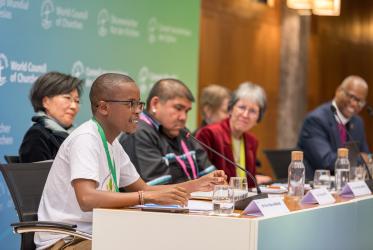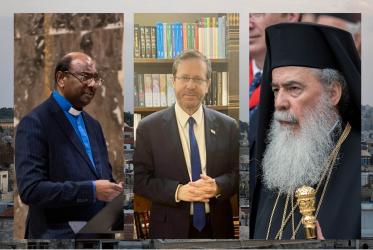Displaying 1 - 20 of 1756
A table with space for everyone
11 April 2024
A global outlook from different angles
10 April 2024
The things that make for peace in Colombia
09 April 2024
WCC met with Rainbow Pilgrims Group
27 March 2024
On International Women’s Day, “we want us alive”
13 March 2024
WCC at the Commission on the Status of Women
09 - 22 March 2024












